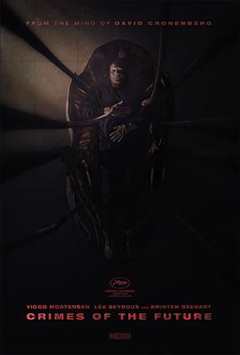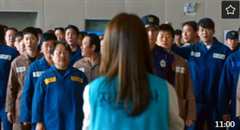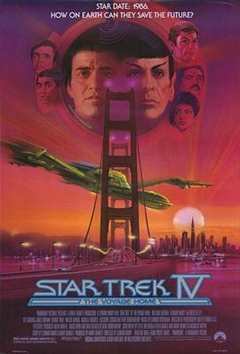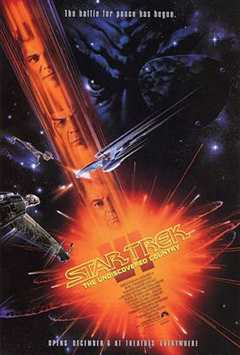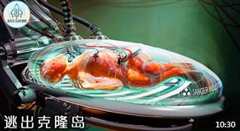上海又一行业被团灭:未来是大趋势(6)
2023-05-03 来源:飞速影视
190. Life is like riding a bicycle.To keep your balance,you must keep moving. 人生就像骑单车,只有不断前进,才能保持平衡。(爱因斯坦) 191. Be thankful for what you have.You"ll end up having more. 拥有一颗感恩的心,最终你会得到更多。192. Beauty is how you feel inside, and it reflects in your eyes. 美是一种内心的感觉,并反映在你的眼睛里。(索菲亚·罗兰) 193. Friendship doubles your joys, and divides your sorrows. 朋友的作用,就是让你快乐加倍,痛苦减半。194. When you long for something sincerely, the whole world will help you. 当你真心渴望某样东西时,整个宇宙都会来帮忙。echanical things.” “I wasn’t that into fixing cars,” Jobs admitted. “But I was eager to hang out with my dad.” Even as he was growing more aware that he had been adopted, he was becoming more attached to his father. One day when he was about eight, he discovered a photograph of his father from his time in the Coast Guard. “He’s in the engine room, and he’s got his shirt off and looks like James Dean. It was one of those Oh wow moments for a kid. Wow, oooh, my parents were actually once very young and really good-looking.” Through cars, his father gave Steve his first exposure to electronics. “My dad did not have a deep understanding of electronics, but he’d encountered it a lot in automobiles and other things he would fix. He showed me the rudiments of electronics, and I got very interested in that.” Even more interesting were the trips to scavenge for parts. “Every weekend, there’d be a junkyard trip. We’d be looking for a generator, a carburetor, all sorts of components.” He remembered watching his father negotiate at the counter. “He was a good bargainer, because he knew better than the guys at the counter what the parts should cost.” This helped fulfill the pledge his parents made when he was adopted. “My college fund came from my dad paying $50 for a Ford Falcon or some other beat-up car that didn’t run, working on it for a few weeks, and selling it for $250—and not telling the IRS.” The Jobses’ house and the others in their neighborhood were built by the real estate developer Joseph Eichler, whose company spawned more than eleven thousand homes in various California subdivisions between 1950 and 1974. Inspired by Frank Lloyd Wright’s vision of simple modern homes for the American “everyman,” Eichler built inexpensive houses that featured floor-to-ceiling glass walls, open floor plans, exposed post-and-beam construction, concrete slab floors, and lots of sliding glass doors. “Eichler did a great thing,” Jobs said on one of our walks around the neighborhood. “His houses were smart and cheap and good. They brought clean design and simple taste to lower-income people. They had awesome little features, like radiant heating in the floors. You put carpet on them, and we had nice toasty floors when we were kids.” Jobs said that his appreciation for Eichler homes instilled in him a passion for making nicely designed products for the mass market. “I love it when you can bring really great design and simple capability to something that doesn’t cost much,” he said as he pointed out the clean elegance of the houses. “It was the original vision for Apple. That’s what we tried to do with the first Mac. That’s what we did with the iPod.” Across the street from the Jobs family lived a man who had become successful as a real estate agent. “He wasn’t that bright,” Jobs recalled, “but he seemed to be making a fortune. So my dad thought, ‘I can do that.’ He worked so hard, I remember. He took these night classes, passed the license test, and got into real estate. Then the bottom fell out of the market.” As a result, the family found itself financially strapped for a year or so while Steve was in elementary school. His mother took a job as a bookkeeper for Varian Associates, a company that made scientific instruments, and they took out a second mortgage. One day his fourth-grade teacher asked him, “What is it you don’t understand about the universe?” Jobs replied, “I don’t understand why all of a sudden my dad is so broke.” He was proud that his father never adopted a servile attitude or slick style that may have made him a better salesman. “You had to suck up to people to sell real estate, and he wasn’t good at that and it wasn’t in his nature. I admired him for that.” Paul Jobs went back to being a mechanic. His father was calm and gentle, traits that his son later praised more than emulated. He was also resolute. Jobs described one exampl What made the neighborhood different from the thousands of other spindly-tree subdivisions across America was that even the ne’er-do-wells tended to be engineers. “When we moved here, there were apricot and plum orchards on all of these corners,” Jobs recalled. “But it was beginning to boom because of military investment.” He soaked up the history of the valley and developed a yearning to play his own role. Edwin Land of Polaroid later told him about being asked by Eisenhower to help build the U-2 spy plane cameras to see how real the Soviet threat was. The film was dropped in canisters and returned to the NASA Ames Research Center in Sunnyvale, not far from where Jobs lived. “The first computer terminal I ever saw was when my dad brought me to the Ames Center,” he said. “I fell totally in love with it.” Other defense contractors sprouted nearby during the 1950s. The Lockheed Missiles and Space Division, which built submarine-launched ballistic missiles, was founded in 1956 next to the NASA Center; by the time Jobs moved to the area four years later, it employed twenty thousand people. A few hundred yards away, Westinghouse built facilities that produced tubes and electrical transformers for the missile systems. “You had all these military companies on the cutting edge,” he recalled. “It was mysterious and high-tech and made living here very exciting.” In the wake of the defense industries there arose a booming economy based on technology. Its roots stretched back to 1938, when David Packard and his new wife moved into a house in Palo Alto that had a shed where his friend Bill Hewlett was soon ensconced. The house had a garage—an appendage that would prove both useful and iconic in the valley—in which they tinkered around until they had their first product, an audio oscillator. By the 1950s, Hewlett-Packard was a fast-growing company making technical instruments. Fortunately there was a place nearby for entrepreneurs who had outgrown their garages. In a move that would help transform the area into the cradle of the tech revolution, Stanford University’s dean of engineering, Frederick Terman, created a seven-hundred-acre industrial park on university land for private companies that could commercialize the ideas of his students. Its first tenant was Varian Associates, where Clara Jobs worked. “Terman came up with this great idea that did more than anything to cause the tech industry to grow up here,” Jobs said. By the time Jobs was ten, HP had nine thousand employees and was the blue-chip company where every engineer seeking financial stability wanted to work. The most important technology for the region’s growth was, of course, the semiconductor. William Shockley, who had been one of the inventors of the transistor at Bell Labs in New Jersey, moved out to Mountain View and, in 1956, started a company to build transistors using silicon rather than the more expensive germanium that was then commonly used. But Shockley became increasingly erratic and abandoned his silicon transistor project, which led eight of his engineers—most notably Robert Noyce and Gordon Moore—to break away to form Fairchild Semiconductor. That company grew to twelve thousand employees, but it fragmented in 1968, when Noyce lost a power struggle to become CEO. He took Gordon Moore and founded a company that they called Integrated Electronics Corporation, which they soon smartly abbreviated to Intel. Their third employee was Andrew Grove, who later would grow the company by shifting its focus from memory chips to microprocessors. Within a few years there would be more than fifty companies in the area making semiconductors. The exponential growth of this industry was correlated with the phenomenon famously discovered by Moore, who in 1965 drew a graph of the speed of integrated circuits, based on the number of transistors that could be placed on a chip, and showed that it doubled about every two years, a trajectory that could be expected to continue. This was reaffirmed in 1971, when Intel was able to etch a complete central processing unit onto one chip, the Intel 4004, tronic amplifier. “So I raced home, and I told my dad that he was wrong.” “No, it needs an amplifier,” his father assured him. When Steve protested otherwise, his father said he was crazy. “It can’t work without an amplifier. There’s some trick.” “I kept saying no to my dad, telling him he had to see it, and finally he actually walked down with me and saw it. And he said, ‘Well I’ll be a bat out of hell.’” Jobs recalled the incident vividly because it was his first realization that his father did not know everything. Then a more disconcerting discovery began to dawn on him: He was smarter than his parents. He had always admired his father’s competence and savvy. “He was not an educated man, but I had always thought he was pretty damn smart. He didn’t read much, but he could do a lot. Almost everything mechanical, he could figure it out.” Yet the carbon microphone incident, Jobs said, began a jarring process of realizing that he was in fact more clever and quick than his parents. “It was a very big moment that’s burned into my mind. When I realized that I was smarter than my parents, I felt tremendous shame for having thought that. I will never forget that moment.” This discovery, he later told friends, along with the fact that he was adopted, made him feel apart—detached and separate—from both his family and the world. Another layer of awareness occurred soon after. Not only did he discover that he was brighter than his parents, but he discovered that they knew this. Paul and Clara Jobs were loving parents, and they were willing to adapt their lives to suit a son who was very smart—and also willful. They would go to great lengths to accommodate him. And soon Steve discovered this fact as well. “Both my parents got me. They felt a lot of responsibility once they sensed that I was special. They found ways to keep feeding me stuff and putting me in better schools. They were willing to defer to my needs.” So he grew up not only with a sense of having once been abandoned, but also with a sense that he was special. In his own mind, that was more important in the formation of his personality. School Even before Jobs started elementary school, his mother had taught him how to read. This, however, led to some problems once he got to school. “I was kind of bored for the first few years 在这种情况下,俄罗斯和欧洲正兴建一条新的天然气运输管道,这就是北溪-2项目,这个项目全长1224公里,从俄罗斯穿过波罗的海,将天然气运输到德国和其它国家,欧洲很多国家都参与了这条管道项目的建设,毕竟这是欧洲国家的民生工程。
相关影视

未来罪行
2022/加拿大/科幻片
打骗行动之你被盯上了
2016/大陆/国产剧
魔环之逆行未来
2017/大陆/科幻片
星际旅行4:抢救未来
1986/美国/科幻片
星际旅行6未来之城
1991/美国/科幻片
未来世界的荒野小岛,竟是人类养殖场,专门用来给富人续命
0/大陆/综艺
这个修士来自未来动态漫画第一季
2022/大陆/国产动漫
合作伙伴
本站仅为学习交流之用,所有视频和图片均来自互联网收集而来,版权归原创者所有,本网站只提供web页面服务,并不提供资源存储,也不参与录制、上传
若本站收录的节目无意侵犯了贵司版权,请发邮件(我们会在3个工作日内删除侵权内容,谢谢。)
若本站收录的节目无意侵犯了贵司版权,请发邮件(我们会在3个工作日内删除侵权内容,谢谢。)
www.fs94.org-飞速影视 粤ICP备74369512号
